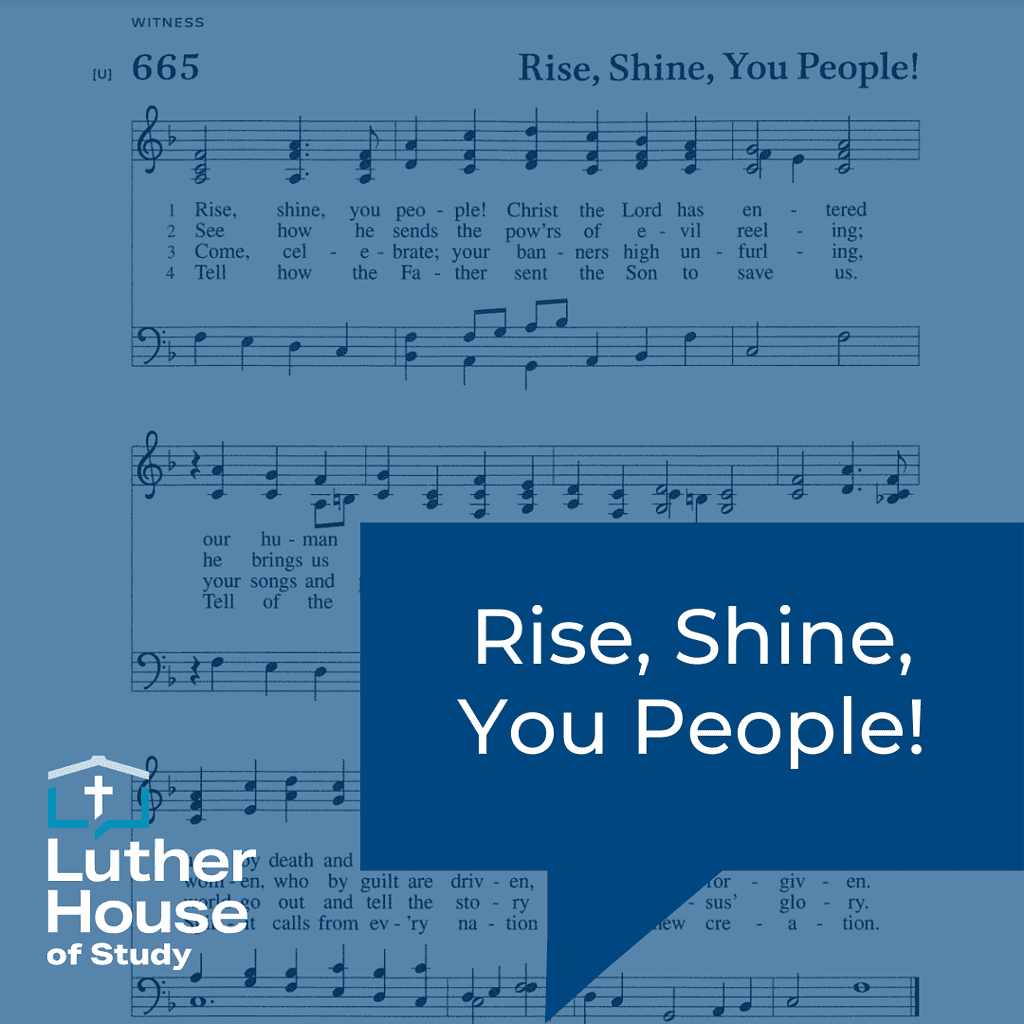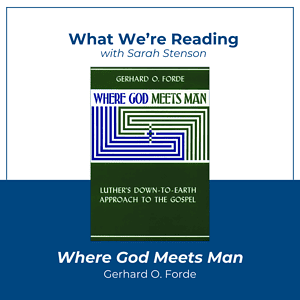ELW 665 — “Rise, Shine, You People!” — ᴡᴏᴊᴛᴋɪᴇᴡɪᴇᴄᴢ
Selecting suitable hymns for a Reformation Day service seems like a straightforward task, right? A simple Google search tells us that Martin Luther himself wrote over 35 hymns. Surely one or two of these should be worth singing, especially for those who brand themselves Lutheran.
In fact, Luther’s popularity as a poet and composer extends even to the most devout Roman Catholic parishioner, whose hymnals list his most popular tune — “A Mighty Fortress Is Our God” — alongside ancient chants of the faith.
With what seems like an open-and-shut case each October, it may seem strange to focus on a contemporary hymn written more than 450 years after Martin Luther posted his theses.
Yet, at the risk of 95 better options being nailed to the comment section of this blog, let’s spend a few moments considering a more recent addition to Lutheran hymnals — “Rise, Shine, You People!”
This hymn is offered up as a nod to the spirit in which Martin Luther first penned his famous Reformation chorales. He wrote hymns that would allow the good news of Christ to be sung in the vernacular German of his day. Not long after creating his now famous paraphrases of Psalm 46, Psalm 130 and other songs of Scripture, Luther recognized a need for others to provide new texts and tunes for congregations to sing. He was but one poet and musician; others needed to join in this effort.
Though published in the latter half of the twentieth century, “Rise, Shine, You People!” was born from a similar Reformation spirit. When the new hymnal of its day — the Lutheran Book of Worship [LBW] — was prepared for congregational use in the 1970’s, Augsburg Publishing House sought to encourage the composition of new hymns. Poets offered up new texts and musicians composed melodies to accompany their efforts. “Rise, Shine, You People!” was one result of the project, with text by poet Ronald Klug and musician Dale Wood. It has since been published in over 10 hymnals across multiple Christian denominations.
On a day when Lutheran-Christians celebrate the gift of God’s grace apart from works, this hymn begins somewhat counterintuitively, giving worshippers something to do: “Rise, shine, you people!”
This may sound like the opposite of Luther’s teaching of justification by faith alone, but we should remember such words are also biblical. Both the Old and New Testament exhort such work — because we are the light of the world! As the poet puts it: “Christ the Lord has entered our human story; God in him is centered. He comes to us by death and sin surrounded, with grace unbounded.” His work on our behalf gives us reason to sing.
In one sense, the claim of this first stanza is simple enough. When the good news of Christ takes center stage, we know the grace of God. To paraphrase Luther, this should be “most certainly true” on Reformation Day.
Even more, the hymn says this grace is “unbounded” or without limit. Such songs and words work well when red paraments adorn the chancel of many congregations and Lutherans around the world ready themselves to celebrate this unique festival day, but how do we make sense of this alongside the more difficult claim of this first stanza? Like so many Lutheran hymns of the sixteenth century, this contemporary contribution won’t let us avoid the truth of life, forcing us to sing: “[Christ] comes to us by death and sin surrounded.”
Even if we seem to escape such bleak circumstances when joining in fellowship with Christians on Reformation morning, the remaining days of the week bring forth this reality. Death and sin surround us and those we love. Whether standing alongside the casket of a family member, or killing friends’ reputations and assassinating coworkers’ character with gossip, we find creative ways to experience death in the life God gives us each day. We are caught in a deadly game in a dying world.
The good news the Reformation sought to share is the same today. Christ comes to those surrounded by sin and death not to give the generic grace of God, but to bear the sin and death we create for ourselves each day. Our Lord comes to us that He might be glorified in death on the cross. It may sound odd to speak of death as glorious — until we know the result of Christ’s work: “All men and women … now are forgiven!”
This is grace and life without limit, and it leads the poet to write these words of faith: “See how [Christ] sends the pow’rs of evil reeling; he brings us freedom, light and life and healing.” Jesus’ work means freedom from all human failure, light in the most dismal times of life and healing to those broken by the weight of guilt and despair. The death we experience and create each day has no place here. Christ has come to renew us and give the Word of life. As the hymn says, we are a “new creation” in the Lord.
When we have life in Christ, there is one final task suggested by our hymn-writer: “Celebrate!” Such a recommendation may sound somewhat self-serving around this festival day of the Reformation, with worshippers decked out in red. “We are Lutheran — look at us!” We know how easily this can happen.
This hymn reminds us that we celebrate today as those who treasure the gifts God has given. In Father, Son and Holy Spirit, this is a God who “sent the Son to save,” who “[gives] life and freedom,” and “calls to ev’ry nation” that all may know the life-giving “story of Jesus’ glory.”
In the light of Christ’s glorious death and resurrection, we rise to sing songs of faith this festival day and trust the promise Christ gives. Put to death and raised to new life in the waters of baptism, we shine with the light of our Lord’s forgiveness and will rise with him in glory. Whether celebrating this good news in 1517 or 3017, the result is the same. We celebrate and sing with joy. Rise! Shine! We are God’s beloved people today and forever.
Luther House of Study thanks Zachary Brockhoff, Director of Music at First Lutheran Church (Sioux Falls, SD) for sharing his talents and insight on our blog.
Looking for more? Check out some of Zachary’s previous hymn features:
And for a weekly dose of hymnody, tune into our podcast — Sing to the Lord — with Zachary, Lars Olson and Mason Van Essen.


